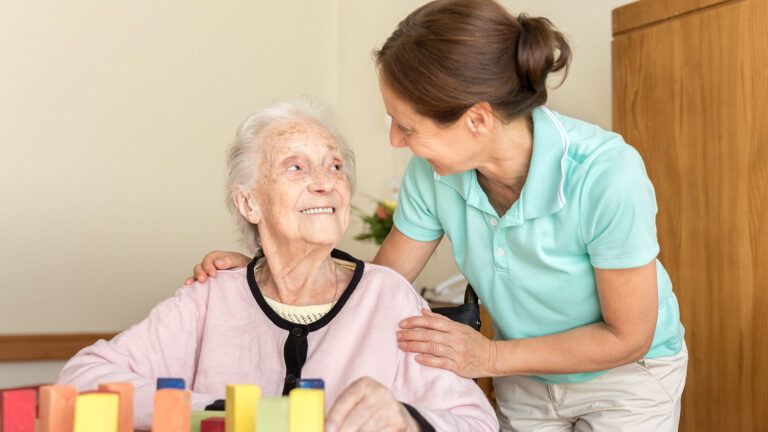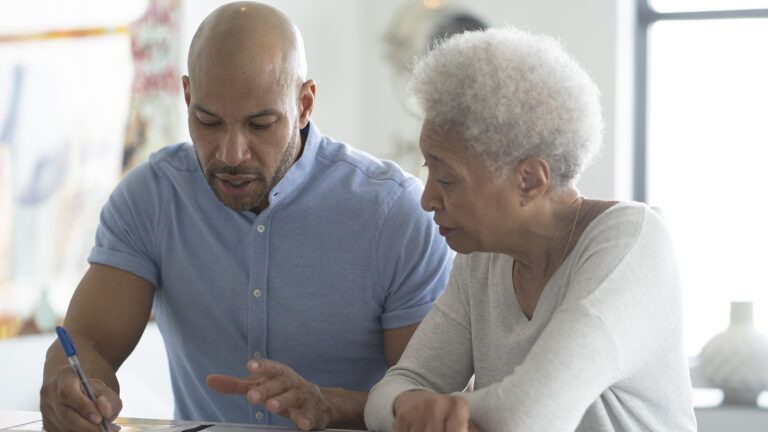This article is based on information provided by Philips Lifeline.
Feeling isolated from others can come with the territory when you are a caregiver. You can be especially vulnerable if family members or friends are not able to give you much support, either because they live far away or are too busy with their own commitments. Maybe you have no family at all. The particular demands of caring for a loved one with Alzheimer’s or another form of dementia can easily lead to loneliness. On top of this, regular tasks like taking your loved one to doctor’s appointments, preparing meals and cleaning can make it difficult for you to keep up with activities and friends you enjoy.
Yet staying in touch with others is enormously important to your emotional and physical health. Not only does it matter to your overall well-being, it also enables you to be a better caregiver. Remember, you are not alone in this situation, and there are many resources to help!
Mental and Physical Health Effects of Loneliness
Caregiver isolation and loneliness can take a serious toll on your mental and physical health.
These feelings can jump-start thoughts and behaviors that exacerbate the emotional toll of caregiving. If you are experiencing these emotions, you are more prone to depression, your cognitive abilities can decline, and you can become detached from day-to-day life.
Caregivers often skip exercise and social interaction, both of which are good for body and soul. They get less sleep, eat less healthily, are prone to substance abuse and are more stressed. Studies show that people who are chronically lonely have significantly higher incidence of heart disease, are more likely to have metastatic cancer, and are at an increased risk of stroke and neurodegenerative diseases such as Alzheimer’s. They are also more likely to have compromised autoimmune systems and lower antiviral response, and to experience inflammation.
The potential ramifications are serious: A study presented at the 125th Annual Convention of the American Psychological Association in 2017 found that social isolation, loneliness or living alone have “a significant and equal effect on the risk of premature death, one that was equal to or exceeded the effect of other well-accepted risk factors such as obesity.”
Ways to Lessen Caregiver Loneliness
The good news is that you don’t have to suffer through these feelings. Following are some strategies to combat caregiver isolation, loneliness and depression:
Participate in a caregiver support group. Meeting regularly with others who face similar challenges reminds us we’re not alone. Support groups, many of which meet online, can be particularly helpful if our friends or family members don’t understand our role in caring for an aging parent or another loved one. It’s possible to form new, more empathetic friendships in these groups, which strengthens our social networks.
Accept a helping hand. You might often feel like you have to do it all yourself, and when you’ve completed your priority tasks for the day, you tend to cancel activities like socializing, exercising or engaging in your favorite hobbies. That only leads to further isolation. If your family members can’t take over some tasks so you have time for other things, look to respite care and home visitation services to provide direct support.
Talk to a counselor. Sometimes you may need more support than a group can provide, especially if you’re experiencing depression or anxiety. Professional therapists are excellent resources who can help you stave off loneliness and better manage your caregiving role.
Build and maintain social connections. A strong social network can help you to feel more resilient, so little setbacks don’t have such a big impact. You may find it easier to work through even bigger issues like an illness or a fall when you have others to talk to, and strong connections can release emotional anxiety. Even if you can’t meet face-to-face with people, you can establish regular video chats to see and talk with those who are important to you.
The added value of exercise. Even a short daily walk can have a positive impact on your health. You can also make use of great apps that remind you to move throughout the day in short spurts, like doing 30 wall push-ups or 10 deep breaths. Physical activity is a terrific energy, stamina and mental health booster. Studies show that even an hour of activity a week can lower the incidence of depression. Even though dealing with loneliness is not uncommon for caregivers, it’s important to recognize that these feelings of isolation do not have to be permanent. Understanding more about loneliness and connecting with the help and resources you need will empower you to fight back against loneliness and remain emotionally and physically healthy.
Don’t disregard professional medical advice, or delay seeking it, because of what you read here. This information is not intended as a substitute for professional consultation, diagnosis or treatment; it is provided “as is” without any representations or warranties, express or implied. Always consult a healthcare provider if you have specific questions about any medical matter, and seek professional attention immediately if you think you or someone in your care may be suffering from a healthcare condition.






